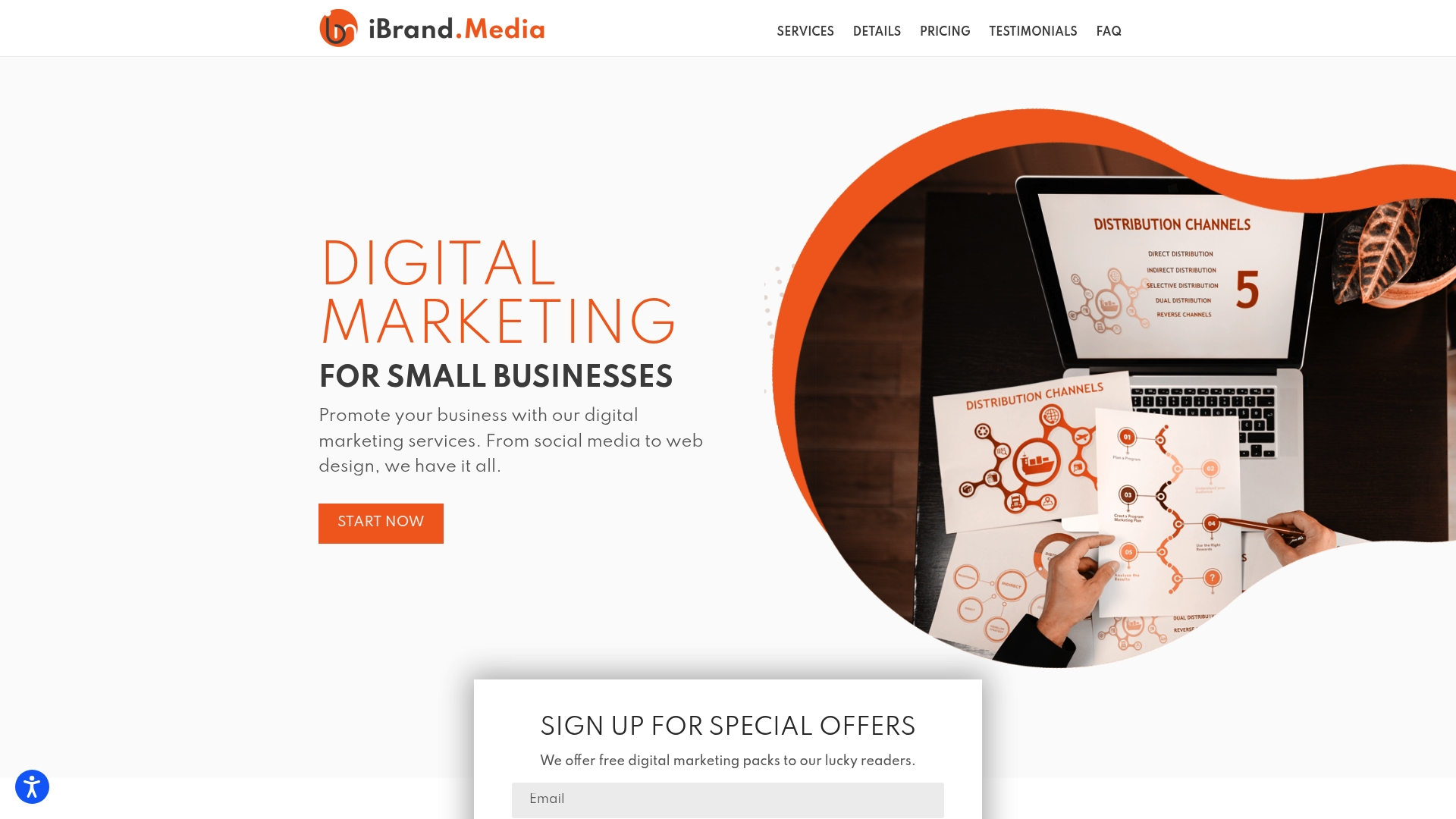A single negative review can sway the opinion of nearly 94 percent of consumers looking up a business online. Your digital reputation shapes the trust and credibility you build with every potential customer, often before any direct contact takes place. Understanding how to protect and enhance this reputation helps your business attract loyal clients, stand out from competitors, and handle public feedback with confidence.
Table of Contents
- Defining Online Business Reputation Management
- Types Of Online Reputation And Platforms
- Strategies For Monitoring Your Reputation
- Responding To Reviews And Public Feedback
- Common Mistakes And Damage Control Steps
Key Takeaways
| Point | Details |
|---|---|
| Comprehensive ORM Approach | Online reputation management (ORM) is essential for businesses to monitor and influence their digital narrative, helping to build trust and credibility. |
| Tailored Platform Strategies | Each online platform has unique dynamics requiring specific strategies for managing reputation, from social media to review sites. |
| Proactive Monitoring | Effective reputation monitoring involves utilizing tools to track mentions and reviews, demonstrating commitment to customer satisfaction. |
| Responsive Feedback Management | Businesses should respond to reviews promptly and professionally to address concerns and improve customer loyalty. |
Defining Online Business Reputation Management
Online business reputation management is the strategic process of monitoring, influencing, and managing how your business is perceived across digital platforms. According to Webopedia, it involves developing a professional internet presence and curating it for positive growth and increased trust.
At its core, online reputation management (ORM) represents a comprehensive approach to controlling your digital narrative. As Wix explains, this practice encompasses monitoring online information, managing content about your business, and proactively addressing negative feedback or reviews. Small businesses must recognize that their online reputation can make or break customer trust and potential sales.
Key components of effective online reputation management include:
- Monitoring social media mentions and reviews
- Responding professionally to customer feedback
- Creating positive, authoritative content
- Managing search results related to your business
- Tracking and analyzing online sentiment
Successful ORM isn’t about hiding negative information but transparently addressing concerns and showcasing your business’s commitment to customer satisfaction. By implementing strategic reputation management techniques, businesses can build credibility, attract new customers, and maintain a positive digital presence. Learn more about managing online reputation in our comprehensive guide to transform your digital strategy.
Types of Online Reputation and Platforms
Web presence encompasses the various digital touchpoints where businesses interact with their audience. According to Wikipedia, web presence management involves establishing and maintaining a digital footprint across multiple platforms, including websites, social media, and other web pages representing a business.
Businesses today navigate a complex landscape of online reputation platforms, each offering unique opportunities for engagement and brand representation. Social media platforms play a critical role in this ecosystem. As Wikipedia highlights, social commerce has emerged as a powerful subset of electronic commerce, enabling social media and online interactions to support user contributions and facilitate buying and selling of products and services.
Key online reputation platforms include:
- Review websites (Yelp, Google Reviews)
- Social media networks (Facebook, LinkedIn, Instagram)
- Industry-specific review platforms
- Professional directories
- Customer feedback forums
- Company websites and blogs
Understanding these platforms requires recognizing their unique dynamics. Each channel demands a tailored approach to reputation management, from responding to customer reviews on Yelp to maintaining a professional presence on LinkedIn.
 Discover strategies for managing your business listings effectively to maximize your online reputation across these diverse platforms.
Discover strategies for managing your business listings effectively to maximize your online reputation across these diverse platforms.
Strategies for Monitoring Your Reputation
Online reputation monitoring is a critical process for businesses seeking to maintain a positive digital presence. According to Webopedia, effective online reputation management involves using various strategies and techniques to track and manage online information and content about your brand.
Comprehensive reputation monitoring requires a multi-channel approach. Wix emphasizes the importance of systematically tracking and addressing feedback across different platforms. Businesses must develop a proactive strategy that goes beyond simply reacting to negative comments.
Key strategies for effective reputation monitoring include:
- Setting up Google Alerts for your business name
- Monitoring social media mentions and comments
- Tracking review sites like Yelp, Google Reviews, and industry-specific platforms
- Using social listening tools to capture brand mentions
- Regularly checking search engine results for your business
- Analyzing sentiment across different online channels
Successful reputation monitoring is an ongoing process that requires consistent attention and quick response times. Small businesses can leverage both free and paid tools to stay ahead of their online narrative.
The goal isn’t to eliminate all negative feedback, but to demonstrate responsiveness and commitment to customer satisfaction.
 Learn more about managing your online reputation effectively to protect and enhance your brand’s digital presence.
Learn more about managing your online reputation effectively to protect and enhance your brand’s digital presence.
Responding to Reviews and Public Feedback
Responding to online reviews is a critical component of managing your business’s digital reputation. According to Turizm Research, negative comments that potentially harm the business must be addressed quickly, with the goal of transforming customer complaints into opportunities for satisfaction and loyalty.
Public feedback management requires a strategic and empathetic approach. Journal of Online Transactions Research emphasizes that online reputation management involves actively interacting with people online, creating shareable content, and monitoring stakeholder dialogue to address negative content effectively.
Key principles for responding to reviews include:
- Respond promptly (within 24-48 hours)
- Always remain professional and courteous
- Acknowledge the customer’s specific concerns
- Offer a concrete solution or path to resolution
- Take detailed conversations offline when appropriate
- Show genuine empathy and willingness to improve
Successful review response isn’t about winning an argument, but demonstrating your commitment to customer experience. Each interaction is a public opportunity to showcase your business’s values and problem-solving approach. Discover why online reputation matters for small businesses and learn how strategic feedback management can transform your brand’s perception.
Common Mistakes and Damage Control Steps
Online reputation management requires a proactive and honest approach. According to Reputation Communications, it is not a tool to evade business responsibilities, but an opportunity to use customer feedback for genuine improvement and growth.
Businesses often make critical mistakes when handling their online reputation. Journal of Online Transactions Research emphasizes the importance of actively monitoring and addressing stakeholder dialogue to prevent reputation damage. Ignoring or mishandling feedback can quickly escalate minor issues into significant reputation challenges.
Common reputation management mistakes include:
- Ignoring or deleting negative reviews
- Responding defensively or emotionally
- Failing to follow up on customer complaints
- Inconsistent brand messaging across platforms
- Not training staff on proper communication protocols
- Attempting to hide or manipulate online feedback
Effective damage control requires transparency, accountability, and a genuine commitment to customer satisfaction. When mistakes happen, address them quickly, take responsibility, and demonstrate a clear plan for resolution.
Here’s a summary of the most common online reputation management mistakes and effective damage control steps:
| Common Mistake | Why It’s Harmful | Corrective Action |
|---|---|---|
| Ignoring or deleting negative reviews | Escalates issues, erodes trust | Respond transparently, address publicly |
| Responding defensively or emotionally | Damages professionalism, deters customers | Stay calm, use professional language |
| Failing to follow up on complaints | Signals lack of care or responsibility | Follow up promptly, show accountability |
| Inconsistent brand messaging | Confuses stakeholders, weakens brand | Maintain clear, unified messaging |
| Not training staff | Increases risk of poor communication | Train team on protocols |
| Hiding or manipulating feedback | Undermines credibility, leads to distrust | Be transparent, encourage honest feedback |
| The goal is not to appear perfect, but to show your business values customer experience and continuous improvement. Learn why online reputation matters for small businesses and develop a strategic approach to managing your digital presence. |
Strengthen Your Online Reputation with Proven Digital Marketing Solutions
Managing your online business reputation involves more than just monitoring reviews and responding to feedback. It requires a strategic approach that builds trust, showcases your commitment to customers, and turns every interaction into an opportunity for growth. If you are struggling with negative reviews, inconsistent brand messaging, or simply want to enhance your digital footprint, ibrand.media offers tailored solutions designed specifically for small to medium-sized businesses facing these exact challenges.

Take control of your digital narrative today by partnering with a team that understands the importance of transparency and responsiveness. Explore how our expert services, including SEO optimization, social media management, and web design, can help you create a strong, positive web presence. Start building trust and attracting loyal customers now with Uncategorized | Ibrandmedia. Ready to elevate your business reputation? Visit ibrand.media and request a custom plan designed just for you.
Frequently Asked Questions
What is online business reputation management?
Online business reputation management is the strategic process of monitoring and managing how a business is perceived online, involving proactive engagement with customer feedback and the creation of positive content.
Why is online reputation management important for small businesses?
Small businesses rely heavily on their online reputation to build customer trust and increase sales. A positive online presence can significantly impact customer decisions and loyalty.
How can I monitor my business’s online reputation?
You can monitor your business’s online reputation by setting up Google Alerts, tracking social media mentions, checking review sites, and using social listening tools to capture brand mentions and sentiment across various platforms.
What should I do if I receive negative reviews?
Respond promptly and professionally to negative reviews, acknowledging the customer’s concerns and offering a solution. Taking the conversation offline can sometimes help address the issue more effectively.
Recommended
- How to Manage Online Reputation: A 2025 Guide for Local Businesses | Ibrandmedia
- Why Is Online Reputation Important for Small Businesses in 2025? | Ibrandmedia
- How to Manage Online Reputation: A 2025 Guide for Local Businesses | Ibrandmedia
- Understanding SEO Best Practices for Your Business – My Blog
- How to Improve Online Visibility in 2025: Proven Tips for Growth

Recent Comments